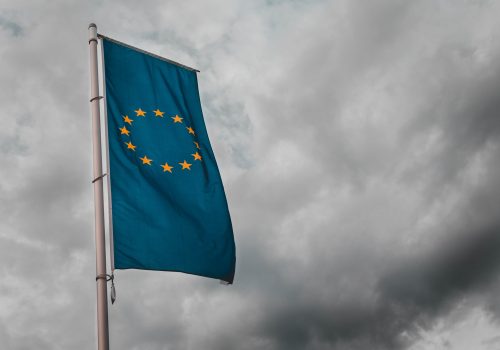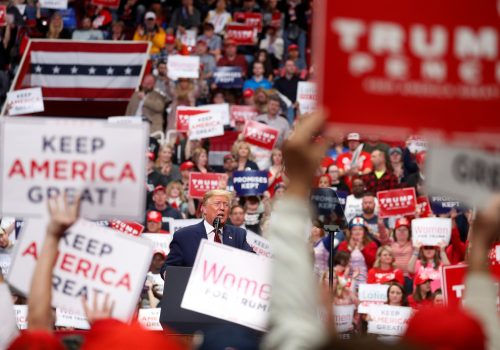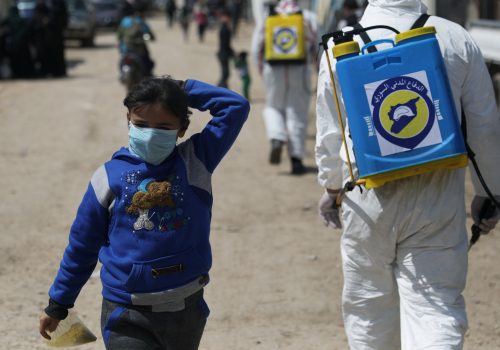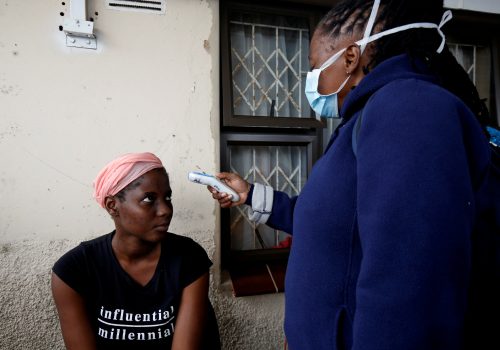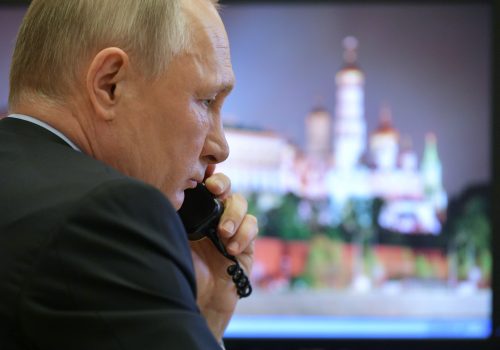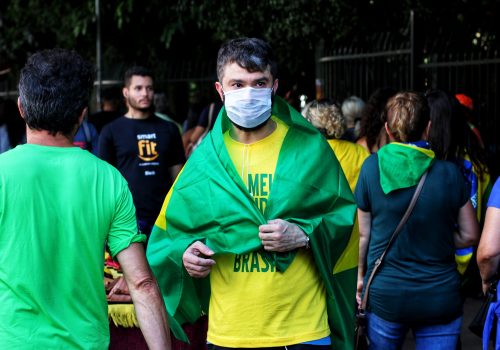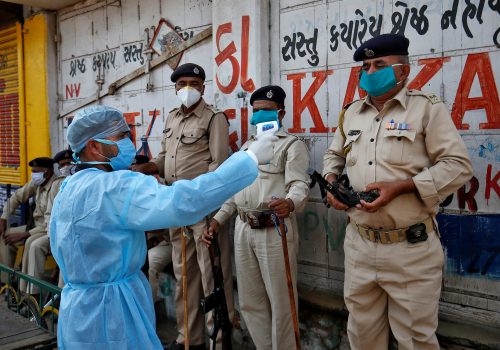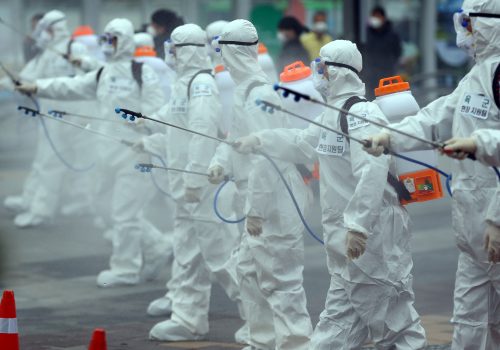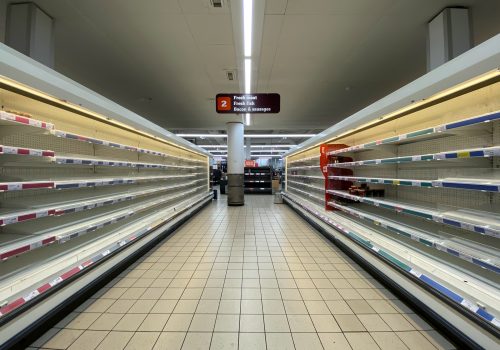Another test for Europe
A lack of multilateral and bilateral European solidarity—the third time within the last decade (migration, the eurozone crisis, and now COVID-19)—could be the catalyst for further erosion of the EU.
But crises have historically propelled the EU to greater heights of integration.
The full text of the paper is split across the various articles linked below. Readers can browse in any order. To download a PDF version, use the button below.
The coronavirus has affected the Mediterranean South: Italy and Spain, for example, have complained about lack of support from Brussels.1Mark Lowen, “EU Could Fail Over Outbreak, Warns Italy’s Giuseppe Conte,” BBC, April 9, 2020, https://www.bbc.com/news/world-europe-52224838. However, we have seen the European Commission show flexibility on deficit spending. The European Central Bank (ECB) is promising to do “what it takes”2Martin Arnold, “ECB Dissenters Resisted Christine Lagarde’s ‘No Limits’ Virus Response,” Financial Times, April 9, 2020, https://www.ft.com/content/5c488ebd-a8f5-4c86-bde6-ce183f29d15b. to protect the euro and help with the recovery of individual member states.
EU COVID-19 fiscal stimulus, including the recent Eurogroup package, brings the total to more than €3 trillion, which is the largest in the world. While Germany and the Netherlands continue to oppose even limited mutualization of debt, as represented by the “coronabonds,” in early May we saw France and Germany come together to propose a $543 billion recovery fund providing grants, not loans, to the hardest-hit regions in Europe.
This fund has still to be approved by other member states and is expected to face opposition from Austria, Finland, and the Netherlands. Without large-scale help, there is worry that a struggling post-COVID-19 Italy could spark the next eurozone crisis.
The chances of Europe alone saving the multilateralist framework for international relations are slim without help from the United States and acquiescence from China. An early and strong US recovery, combined with a change in leadership in Washington, could see the two sides of the Atlantic relaunch an effort to refurbish and reform international institutions such as the World Trade Organization (WTO), the WHO, Bretton Woods institutions, and others. But it will require the United States and the EU taking more responsibility for the developing world’s predicaments, countering China’s Belt and Road Initiative (BRI). A broader US and European coming together against China would also be needed to make it work and avert an East-West competition in which, just like during the Cold War, the developing world would not necessarily be a winner.
See where US leadership is most vulnerable
Related content
About the authors
Image: EU flag flying under a cloud sky in Germany. Photo by Sara Kurfeß on Unsplash


